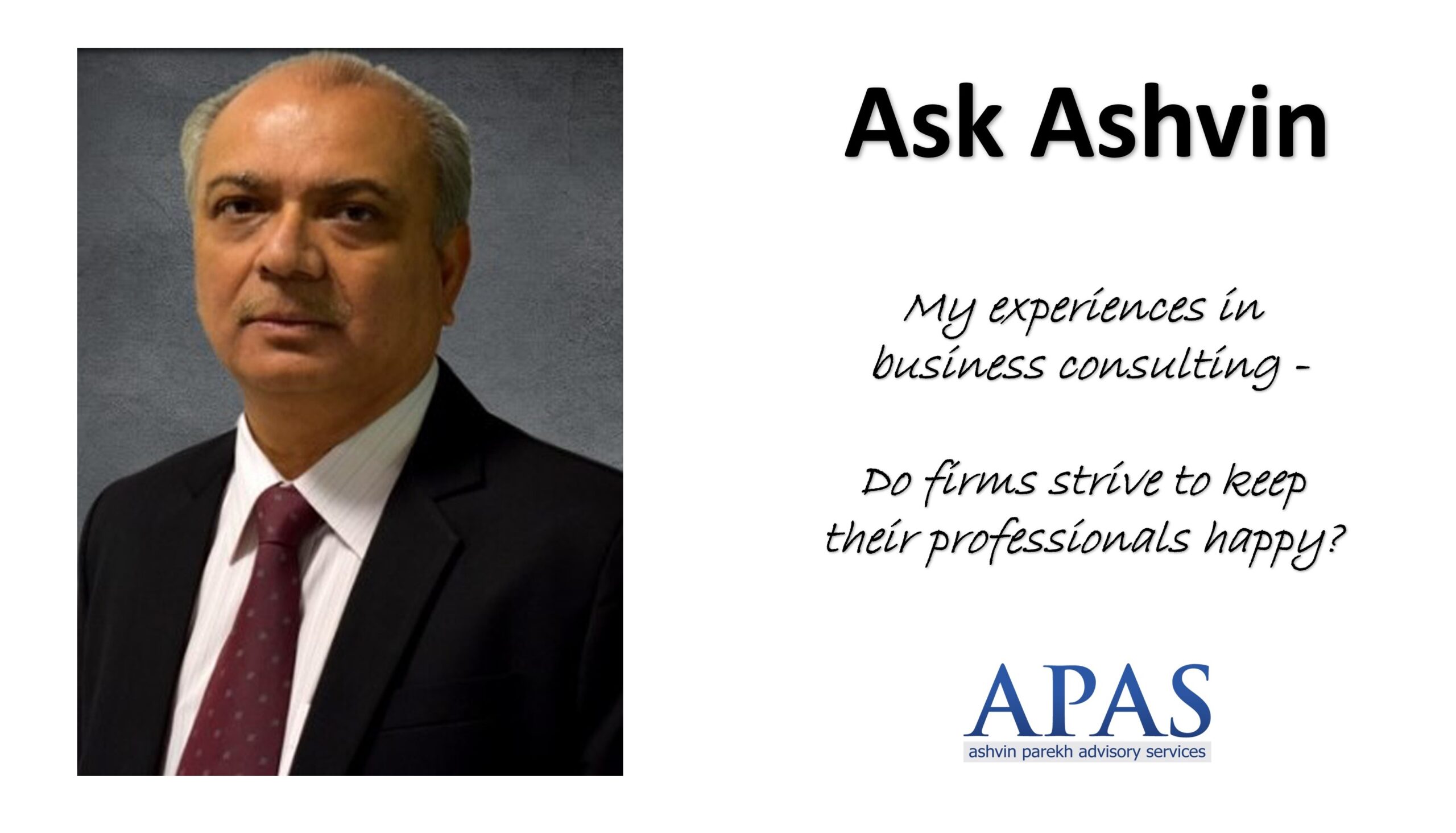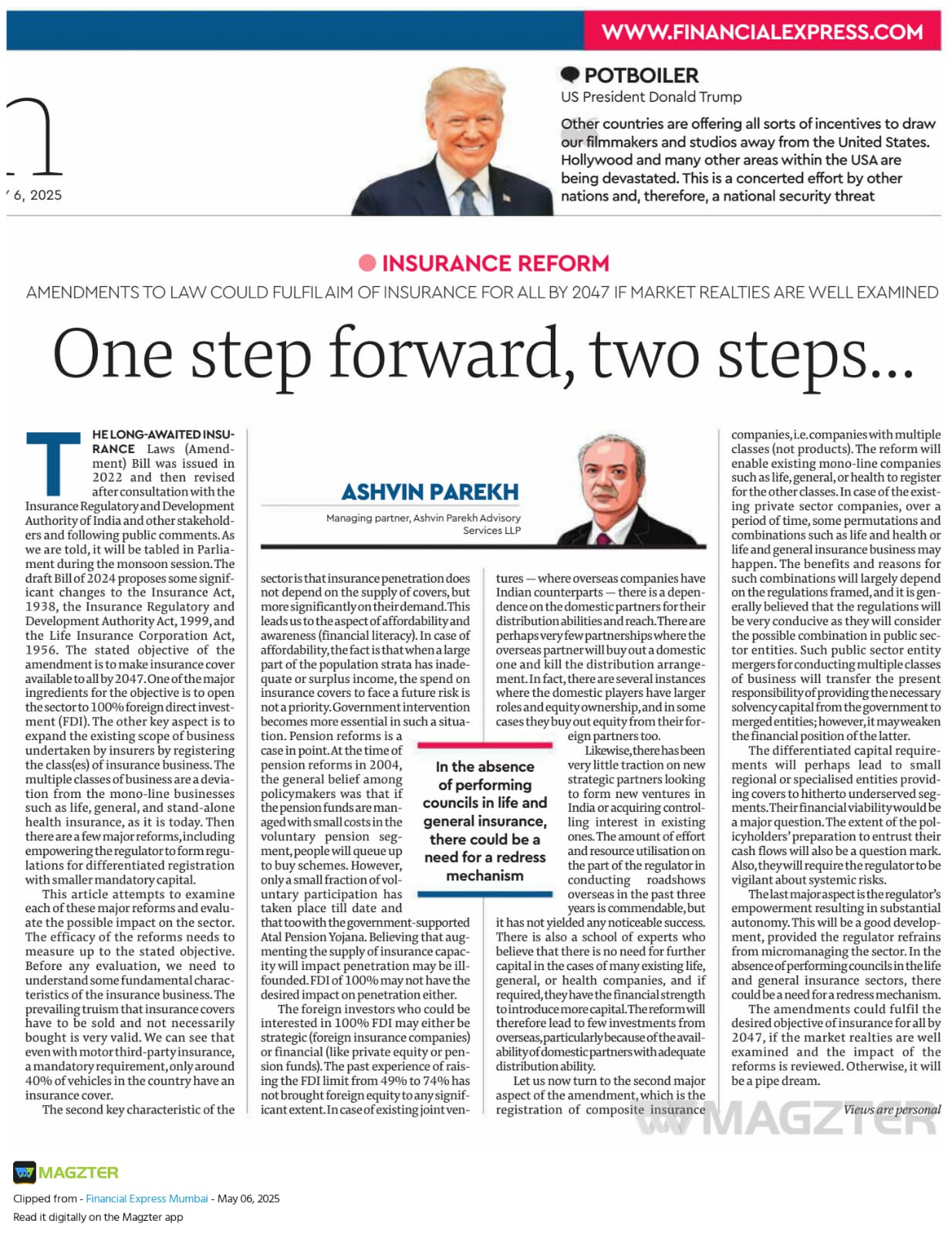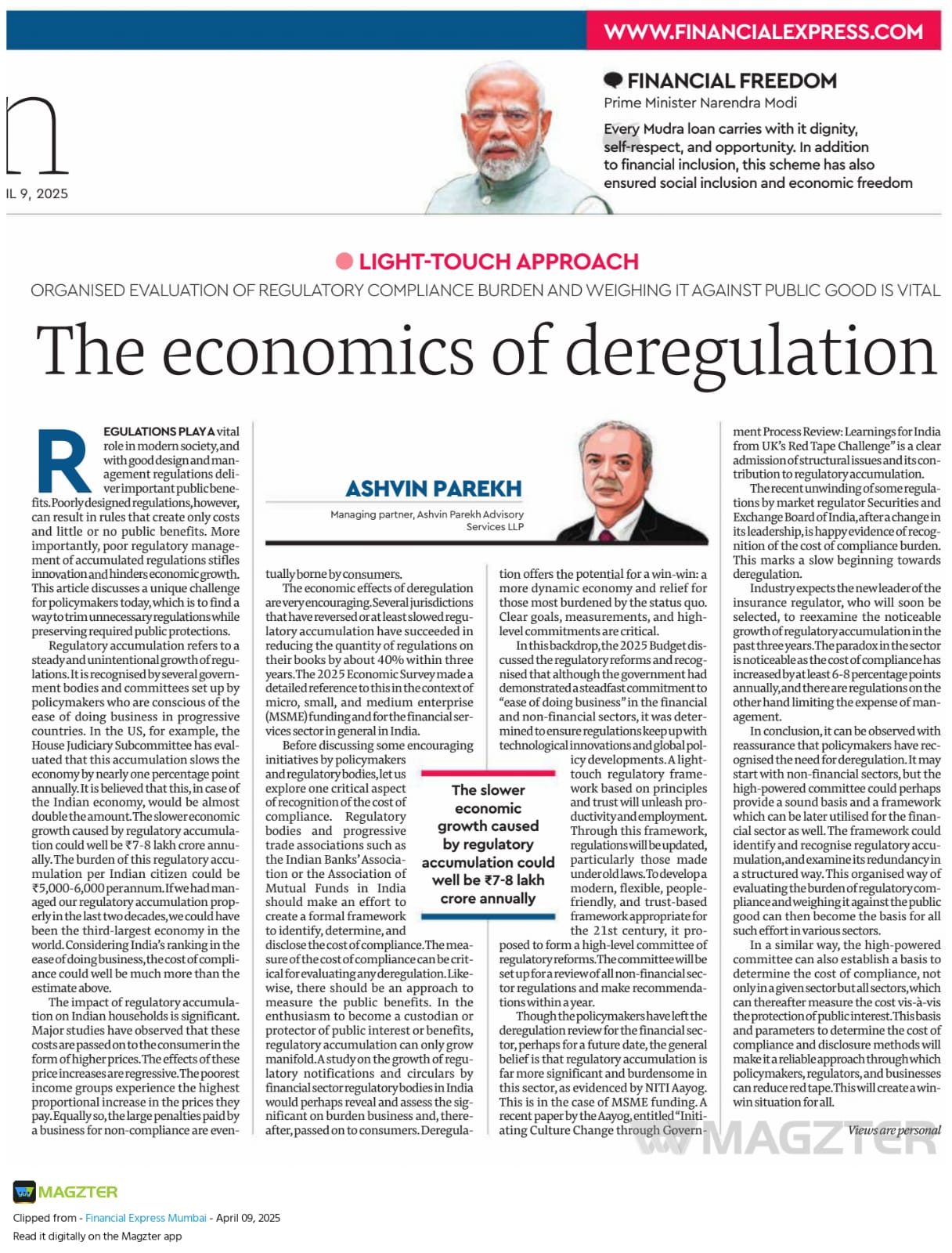by APAS Team
Share
by APAS Team
Share

My Experience in consulting – Do firms strive to keep their professionals happy?
“Life is a journey, and if you fall in love with the journey, you will be in love forever.”
Peter Hagerty
At the vocation guidance programs conducted by many post-graduation institutions, particularly at the recruitment campus, the usual question asked is the measures that the firms take to ensure that the consulting career renders them happiness. In this blog I discuss my evaluation of this process between firm and its professionals. This evaluation is based on my interaction with hundreds of colleagues who happened to work with me, as a part of my team or otherwise being with the firms I worked with.
Normally, when I probe them, I try of find out what their idea of happiness is, and the usual response I get are one or more of the following.
Recognition manifesting in compensation or promotion, supporting and ensuring his family happiness, or something arising out of envy or peer comparisons- getting a cubicle of one’s own in the firm or ability to acquire a car or a house and so on…. I listen to these aspirations and analyse them. In my days even I had these questions at various stages of my career. What I have learnt over these years is that I was wasting my time in this pursuit. I recognise that true happiness lies in excelling in your area of work and getting recognised by clients and all people including colleagues. The question we fail to ask ourselves is the extent of pain and effort we need to go through to get that happiness. Are we prepared to get through that pain and suffering? In the first twenty odd years, I used to suffer each time I had to push my happiness objectives by a few years. My aspirations of acquiring those assets- tangible or abstract such as a car or cars, own cabin, a house and many more only got moved to new target dates.
Then the change happened, when I moved from a firm to another one, I was happy that my clients were still eager to work with me. My happiness was in terms of having recognition of my expertise all around me. That was short-lived. Then there was pain and suffering, each time I thought I had not given my best shot to a problem, I suffered. Now let us look at external environment – the workplace. Your inner world should reside well with the workplace. All the firms have the necessary hardware, that is the policy framework to strive for employee happiness. After all, the firms which comprise of professionals only understands the need for making workplace a happy place and the professionals happy. They spend sizeable resources to ensure their growth and expect a healthy return on their investment by creating the infrastructure. The firms have substantial reputation risk if they fail in meeting the benchmark standards of quality of work done. Each time the implementation fails from the policy framework, it shows. The clients, media and even the regulations trouble firms to explain such failures.
The framework, based on my own experience with the big five firms (including Arthur Anderson) is uniform across all the offices of all the firms. The software aspect as I call it, is however the issue, the aspect of how professionals implement the policy framework. After all the professionals are humans and have their strengths, weaknesses, biases, sense of insecurity and fears.
My evaluation in this regard begins with the very governance framework in the firms. I would rate the implementation of governance framework to be between 3 to 5 on a scale of 10. This assessment is based on an evaluation of five firms, in almost five countries where I was seconded and eleven offices where I worked at various stage of my career. The longer a leader continues in the leadership role, the more the probability of tweaking the framework. Like most other businesses or professions, which are in service sector and have the organisation dependent on people, the power politics will happen. Several aspects such as selection, working and efficacy of the governance council, the clarity of roles of partners, how often the leader is reappointed, how fair and transparent is the performance, etc have influence on the governance of the firm. These factors have a direct impact on morale of people and therefore that of firm collectively. The second important factor is the amount of time spent by leadership on attending client work vis-à-vis the time spent on internal matters from operational issues to interpersonal problems. Each time I had the leadership role, I evaluated the time I was utilising in the practice development and growth of my professional colleagues and the time in settling turf disputes or interpersonal squabbles, I would decide to consider a change of the firm or continue with it. Lack of happiness was visible in cases where organisation was drawn into internal disputes, visible or silent. In fact, silent ones boil the inner world and peace and health more than where people are allowed to speak it out.
The third factor is the quality of training both on domain areas as well as on consulting skills. Most firms provide at least on paper, a certain number of hours a week or a month to personal development. When I see most of the staff working late hours, I wonder whether they get time to spend on life with family leave alone personal growth and training. On most occasions when I was invited to conduct a training session, I would find professionals physically being there but elsewhere in their attention. These days most pretend to have mobile calls with their clients or seniors and step out of the classroom.
So where does the answer lie? How does a consultant pursue happiness? I think the answer lies in making a clear assessment of objectives with larger acceptance of pain and suffering. Mind you – the only thing that works is self-motivation.
STAY IN THE LOOP
Subscribe to our free newsletter.
The slower economic growth caused by regulatory accumulation could well [...]
Navigating the Future of Consulting: The Role of Digital Transformation [...]
HDFC Bank Completes Merger, Forging a Financial Powerhouse and Global [...]



